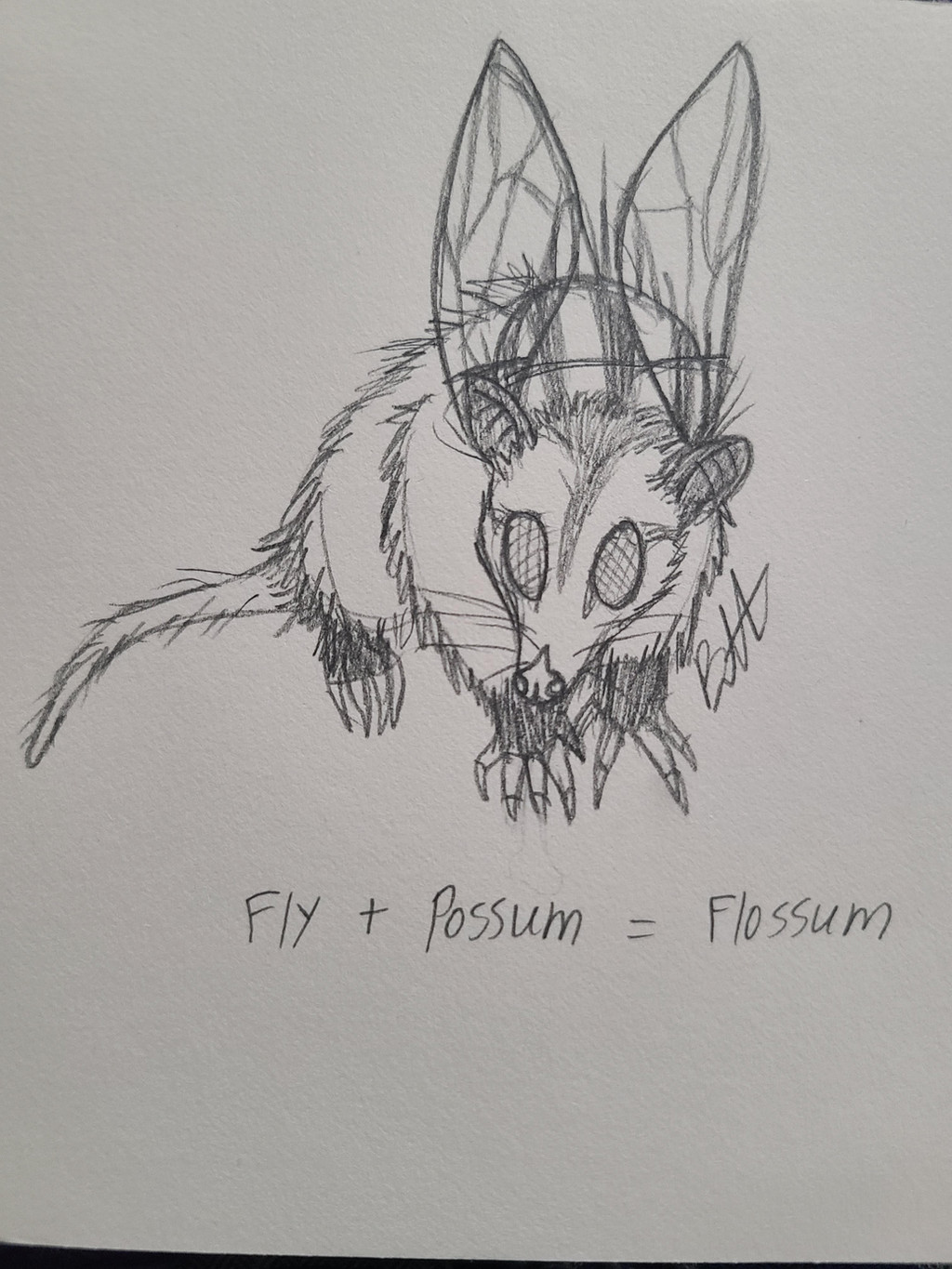HOME | DD
 BadgerWolf97 — Hybrid #001 - The Flossum
BadgerWolf97 — Hybrid #001 - The Flossum

#redacted #animals #blackandwhite #experiment #handdrawn #hybridanimal #insect #mammal #marsupials #opossum #possum #sketchdrawing #traditionalart #hybridcreature #informationsheet #animalsdrawing #fictionalspecies
Published: 2024-04-25 00:21:20 +0000 UTC; Views: 522; Favourites: 6; Downloads: 0
Redirect to original
Description
Hybrid #001
Common Name: Flossum
Parent Genes: Common house fly/Virginia opossum
Genus: Didelphis Musca domestica
Class: Mammal (marsupial)-Insect Hybrid
Order: Didelphimorphia/Diptera
Diet: Omnivore
Average Height: 6 - 10 inches
Average Length: 14 - 37 inches
Average Weight: 4.5 lbs
Reproduction: Viviparous
Capability to Crossbreed: None
Temperament: Docile/Skittish (Rank 4)
Average Lifespan: 2 years
Habitat Preference: Deciduous forests/urban settings
Captive Living: Adjusts well
Utility: 1
Didelphis Musca domestica, or Flossum, was created at lab site [REDACTED] on January 07, 20XX by Professor Burns by artificially combining the DNA of Didelphis virginiana (Virginia Opossum) and Musca domestica Linnaeus (common housefly). This hybrid is one of several experimental hybrids from the beginning phases of Project [REDACTED].
Didelphis Musca domestica is described as a medium-sized mammal of the marsupial class with attributes of the insect class. Much like the Didelphis virginiana, it is gray-white in body color with black paws and ears, gray markings on the head, and pink nose, fingers, and tail. It has large compound eyes varying in coloration amongst individuals and a black and gray thorax where a pair of transparent wings is attached.
Unlike Musca domestica Linneaus, Didelphis Musca flies slowly and for only short periods, preferring to walk and climb. It is semi-nocturnal, being the most active at dusk and dawn, but attracted to bright lights. Tests done by [REDACTED] concludes that this hybrid is docile and skittish, fleeing from any perceived threats. When cornered, it resorts to aggressive displays of open-mouth hissing and spitting until the threat leaves or the hybrid faints.
It has a fast metabolism and a voracious appetite, eating nearly anything. From small mammals and reptiles, to eggs, fruits, vegetables, nectar-producing plants, honey, insects, ticks, centipedes, worms, fish, and carrion. No preference has been observed over any specific food source.
Didelphis Musca domestica is labeled Rank 4 and are to remain at lab site [REDACTED] where they were created. This species will be kept under supervision of Professor Burns and Professor Rackam. This species has a level of 1 under Utility and will therefore not be used for [REDACTED].
























